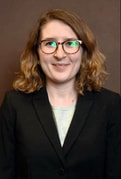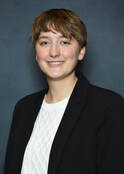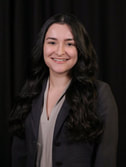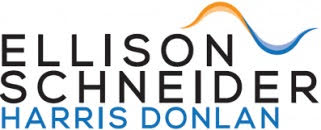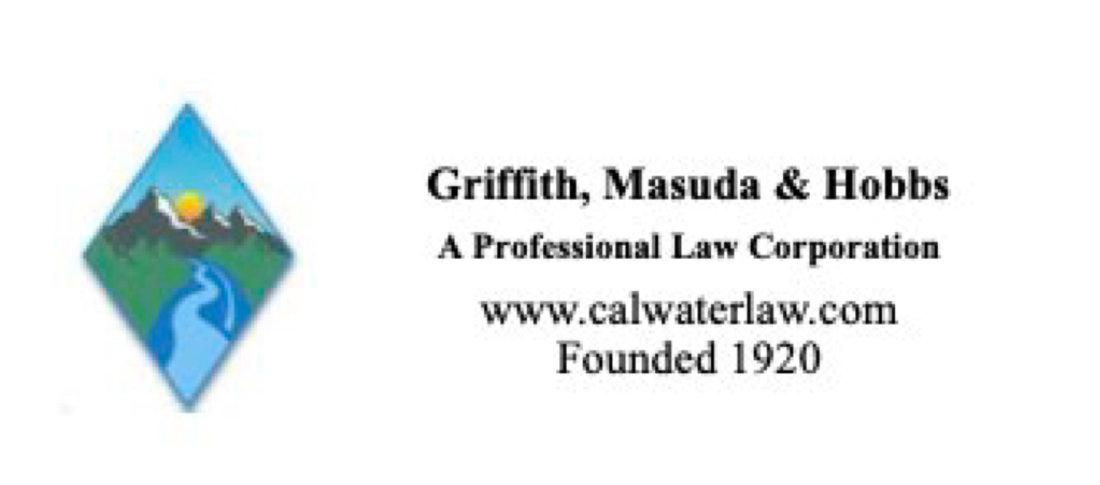EVENT PROGRAM HERE
Agenda
8:45 - 9:30 AM
Opening Remarks: Professor and Faculty Advisor Jennifer Harder, McGeorge School of Law
Welcoming Remarks: Symposium Co-Chairs, Alli Cassing, Allison Marcus, & Devynn Azevedo
California Water Law Writing Prize Award Presentation: WLS Board Member, Nell Green Nylen & Professor Jennifer Harder
In Remembrance: Honoring Clifford Lee, Beloved California Water Law Attorney
Keynote: Dr. Rene Henery, Trout Unlimited
9:45 - 11:00 AM
Panel 1: Hydropower & Species
Organized by: Golden Gate University School of Law & UC College of the Law, San Francisco
11:15 - 12:30 PM
Panel 2: Indigenous Peoples, Water Rights, and Species Protection
Organized by: University of San Francisco School of Law & UC Davis School of Law
12:30 - 1:15 PM
Lunch
1:15 - 2:30 PM
Panel 3: Agricultural Land Repurposing: A Gentler Way to Reform Agricultural Water Use
Organized by: UC Berkeley School of Law & Stanford Law School
2:45 - 4:00 PM
Panel 4: Innovations in Accommodating Water Supply and Species Protection
Organized by: University of the Pacific, McGeorge School of Law
4:00 - 5:00 PM
Reception
Opening Remarks: Professor and Faculty Advisor Jennifer Harder, McGeorge School of Law
Welcoming Remarks: Symposium Co-Chairs, Alli Cassing, Allison Marcus, & Devynn Azevedo
California Water Law Writing Prize Award Presentation: WLS Board Member, Nell Green Nylen & Professor Jennifer Harder
In Remembrance: Honoring Clifford Lee, Beloved California Water Law Attorney
Keynote: Dr. Rene Henery, Trout Unlimited
9:45 - 11:00 AM
Panel 1: Hydropower & Species
Organized by: Golden Gate University School of Law & UC College of the Law, San Francisco
- Dana Heinrich, Attorney, State Water Resources Control Board
- David Rose, Attorney, State Water Resources Control Board
- Daniel Cooper, Sycamore Law Group; Co-Counsel San Luis Obispo Coastkeeper
- Paul Kibel, Professor, Golden Gate University School of Law; Attorney, Water & Power Law Group [Moderator]
11:15 - 12:30 PM
Panel 2: Indigenous Peoples, Water Rights, and Species Protection
Organized by: University of San Francisco School of Law & UC Davis School of Law
- Stephanie Safdi, Supervising Attorney, Stanford Environmental Law Clinic
- Kate Poole, Senior Director, Water Division, Nature Program, NRDC
- Gary Mulcahy, Government Liaison for the Winnemem Wintu Tribe
- Marianna Aue, State Water Resources Control Board, Office of the Chief Counsel
- Margaret Vick, Professor, McGeorge School of Law [Moderator]
12:30 - 1:15 PM
Lunch
1:15 - 2:30 PM
Panel 3: Agricultural Land Repurposing: A Gentler Way to Reform Agricultural Water Use
Organized by: UC Berkeley School of Law & Stanford Law School
- Vicky Espinoza, Strategic Restoration Project Manager, The Nature Conservancy
- Keali'i Bright, Deputy Secretary Climate & Energy, CA Natural Resources Agency
- Rebecca Smith, Partner, Downey Brand, LLP
- Felicia Marcus, Stanford University Water in the West Program Fellow; Attorney, Water Policy Group [Moderator]
2:45 - 4:00 PM
Panel 4: Innovations in Accommodating Water Supply and Species Protection
Organized by: University of the Pacific, McGeorge School of Law
- Shannon Little, Attorney, Department of Fish & Wildlife
- Sarah Null, PhD, Associate Professor of Watershed Sciences, University of Utah
- Ada Fowler, PhD, Mt. Shasta/Klamath Project Manager, Cal Trout
- Kelley Taber, Attorney, Somach Simmons & Dunn
- Kaitlin Harr, Attorney, Kronick Moskovitz Tiedemann & Girard [Moderator]
4:00 - 5:00 PM
Reception
Panel Descriptions and MCLE Resources
Keynote - 9:00 AM
Dr. Rene Henery, Science Director of Trout Unlimited.
Equity, Belonging, and Law as a Healing Practice
Dr. Rene Henery, Science Director of Trout Unlimited.
Equity, Belonging, and Law as a Healing Practice
Panel 1 - 9:45 AM-11:00 AM
Hydropower & Species
Organized by Golden Gate University School of Law & UC College of the Law, San Francisco
Climate change in California is challenging lawyers to develop novel approaches that protect species and balance human interests. This panel focuses on two main issues. First, the panel will examine the impacts of the Central Valley Project’s network of dams on downstream fisheries in the Friant and Shasta Dams. Panelists will address how the Endangered Species Act, National Environmental Policy Act, California Fish & Game Code, and reasonable use law. Second, the panel will also examine how fishery impacts are addressed under the FERC relicensing process for non-federal dams in California.
Hydropower & Species
Organized by Golden Gate University School of Law & UC College of the Law, San Francisco
Climate change in California is challenging lawyers to develop novel approaches that protect species and balance human interests. This panel focuses on two main issues. First, the panel will examine the impacts of the Central Valley Project’s network of dams on downstream fisheries in the Friant and Shasta Dams. Panelists will address how the Endangered Species Act, National Environmental Policy Act, California Fish & Game Code, and reasonable use law. Second, the panel will also examine how fishery impacts are addressed under the FERC relicensing process for non-federal dams in California.
|
Dana Heinrich, CA State Water Resources Control Board
David Rose, CA State Water Resources Control Board Daniel Cooper, Sycamore Law Group; Co-Counsel for San Luis Obispo Coastkeeper Paul Kibel, Professor at GGU; Counsel for Water and Power Law Group [Moderator] |
Panel 2 - 11:15 AM-12:30 PM
Indigenous Peoples, Water Rights, and Species Protection
Organized by University of San Francisco School of Law & UC Davis School of Law
Our panel begins by examining the colonial history that gave rise to California’s unique hybrid water system and shapes Indigenous peoples’ present-day water rights in the Bay Delta context. You will hear from tribal advocates about the impacts of their historical exclusion from California’s water rights system on native species, food security, and cultural survival. The recent approval of the Klamath Dams removal project is a historic coordination effort and one of the most promising salmon recovery opportunities to date. Still, it raises crucial questions: Why did the approval process take so long? What lessons can tribes and future resource managers learn? Finally, to round out the panel will be a forward-looking presentation on water law reform and the tools available to remedy past inequities.
Indigenous Peoples, Water Rights, and Species Protection
Organized by University of San Francisco School of Law & UC Davis School of Law
Our panel begins by examining the colonial history that gave rise to California’s unique hybrid water system and shapes Indigenous peoples’ present-day water rights in the Bay Delta context. You will hear from tribal advocates about the impacts of their historical exclusion from California’s water rights system on native species, food security, and cultural survival. The recent approval of the Klamath Dams removal project is a historic coordination effort and one of the most promising salmon recovery opportunities to date. Still, it raises crucial questions: Why did the approval process take so long? What lessons can tribes and future resource managers learn? Finally, to round out the panel will be a forward-looking presentation on water law reform and the tools available to remedy past inequities.
|
Stephanie Safdi, Supervising Attorney, Stanford Environmental Law Clinic
Kate Poole, Senior Director, Water Division NRDC Marianna Aue, Staff Attorney, State Water Board Office of the Chief Counsel Gary Mulcahy, Government Liaison for the Winnemem Wintu Tribe Malissa A. Tayaba, Vice Chair, Shingle Springs Band of Miwok Indians; Director of Tribe's Traditional Ecological Knowledge Department Margaret Vick, Professor at McGeorge School of Law [Moderator] |
MCLE Materials
Attributes of Federal Indian Reserved Water Rights PPT Reforming California's Inequitable Water Rights System PPT Lower Klamath Project Dam Removal Selected Resources Returning the Water: Water Quality Regulation and Restoration of Instream Flows in California's Bay-Delta PPT Stephanie Safdi Outline of Remarks |
Panel 3 - 1:15 PM-2:30 PM
Agricultural Land Repurposing: A Gentler Way to Reform Agricultural Water Use
Organized by UC Berkeley School of Law & Stanford Law School
Agriculture makes up 80% of California's water use, but agricultural reform has long been left behind in drought management plans. New land repurposing investment programs, collaborations between state agencies and NGOs, promise to transform water-intensive farmlands into wildlife habitat, parks, and water-limited agriculture. But is this enough? Does it focus too much on water and not enough on ecosystems and endangered species? How do farmers and agricultural interests feel about their livelihood being converted? Should they have to agree for the state to alter their land? Should they retain their historic water rights or be required to accept buyouts? And how much help does this offer species in the end?
Agricultural Land Repurposing: A Gentler Way to Reform Agricultural Water Use
Organized by UC Berkeley School of Law & Stanford Law School
Agriculture makes up 80% of California's water use, but agricultural reform has long been left behind in drought management plans. New land repurposing investment programs, collaborations between state agencies and NGOs, promise to transform water-intensive farmlands into wildlife habitat, parks, and water-limited agriculture. But is this enough? Does it focus too much on water and not enough on ecosystems and endangered species? How do farmers and agricultural interests feel about their livelihood being converted? Should they have to agree for the state to alter their land? Should they retain their historic water rights or be required to accept buyouts? And how much help does this offer species in the end?
|
Vicky Espinoza, Strategic Restoration Project Manager, The Nature Conservancy
Keali'i Bright, Deputy Secretary for Climate and Energy, CA Natural Resources Agency Rebecca Smith, Downey Brand Felicia Marcus, Stanford University's Water in the West Program; Attorney/Consultant, The Water Policy Group [Moderator] |
Panel 4 - 2:45 PM-4:00 PM
Innovations in Accommodating Water Supply & Species Protection
Organized by University of the Pacific, McGeorge School of Law
This panel will explore innovative approaches to reconciling the diverse needs of water supply and species protection such as voluntary landowner/water right holder agreements and storing water for the environment. Panelists will describe their experiences with voluntary water initiatives, assessing challenges and opportunities, and share their thoughts about directions for the future. The panel will also describe a new approach for managing environmental water in reservoirs which involves assignment of storage rights to environmental water and allowing environmental water managers to adaptively direct the timing and volume of storage releases for the purpose of maximizing environmental benefits.
Innovations in Accommodating Water Supply & Species Protection
Organized by University of the Pacific, McGeorge School of Law
This panel will explore innovative approaches to reconciling the diverse needs of water supply and species protection such as voluntary landowner/water right holder agreements and storing water for the environment. Panelists will describe their experiences with voluntary water initiatives, assessing challenges and opportunities, and share their thoughts about directions for the future. The panel will also describe a new approach for managing environmental water in reservoirs which involves assignment of storage rights to environmental water and allowing environmental water managers to adaptively direct the timing and volume of storage releases for the purpose of maximizing environmental benefits.
|
Shannon Little, Attorney, Office of the Chief Counsel, Department of Fish and Wildlife
Dr. Sarah Null, Associate Professor at Utah State University Dr. Ada Fowler, Mount Shasta-Klamath Senior Project Manager, Cal Trout Kelley Taber, Attorney, Somach Simmons & Dunn Kaitlin Harr, Attorney, Kronick Moskovitz Tiedemann & Girard [Moderator] |
MCLE Materials
Cutting the Green Tape: Restoration Permitting & CEQA Tools PPT California Department of Fish and Wildlife Initiatives Storing Water for the Environment: Operating Reservoirs to Improve California's Freshwater Ecosystems PPT Policy Brief - Storing Water for the Environment Voluntary Agreements - Shasta Safe Harbor Incidental Take Agreement PPT Ada Fowler Outline of Remarks The Hart Ranch: A Model for Voluntary Conservation Efforts PPT Hart Ranch Voluntary Efforts to Promote Species Conservation Through Exercise of Pre-1914 Water Rights |
University of the Pacific, McGeorge School of Law
Symposium Chairs
|
Alli Cassing
Alli Cassing is a second-year law student at the University of the Pacific, McGeorge School of Law. She previously interned at The Outdoor Circle, an environmental conservation non-profit in Hawai’i. Alli has a B.S. in Communication, with a minor in Political Science, but she has always been interested in protecting the environment for the benefit of all. Her passion for water and environmental law began while growing up in West Virginia, and she seeks to apply this to water law in California as well. Allison Marcus Allison Marcus is a second-year law student at the University of the Pacific, McGeorge School of Law. She previously interned at Nevada County Counsel. Allison holds a B.A. in Biology from Concordia College, Moorhead, MN. Her passion for water and natural resources law stems from growing up in the Sierra Nevada foothills and from her sustainability-focused education. Devynn Azevedo Devynn Azevedo is a second-year law student at the University of the Pacific, McGeorge School of Law. She previously interned at Klinedinst, PC. at their Sacramento office. Devynn has a B.S. in Psychological & Brain Sciences with a minor in Philosophy from UC Santa Barbara. Although new to the field of water and environmental law, Devynn finds this area of law both fascinating and integral to the overall well-being of our society. Her passions lie in being an advocate for disadvantaged and minority populations where many intersectional issues arise, including water and environmental disparities. |
Panel Chairs
UC Berkeley School of Law
Katie Chicojay
Katie is a 2L at Berkeley Law. She received a BA in Environmental Studies from Colby College and a master's degree in Marine Affairs from the University of Washington. Prior to law school she was a NOAA Sea Grant Knauss Fellow working on environmental and natural resource policy in the U.S. House of Representatives. At Berkeley, Katie is an Articles Editor for Ecology Law Quarterly and an active member of La Alianza Law Students of Latin American Descent.
Laura Tepper
Laura Tepper is a 2L at Berkeley Law, where she is an active member of the Ecology Law Quarterly and researching the impact of California's state housing laws on local land use policy. She transitioned to law after a decade of work in urban design and development with a focus on public parks. She is a graduate of Dartmouth College and U.C. Berkeley's College of Environmental Design (MCP).
Katie Chicojay
Katie is a 2L at Berkeley Law. She received a BA in Environmental Studies from Colby College and a master's degree in Marine Affairs from the University of Washington. Prior to law school she was a NOAA Sea Grant Knauss Fellow working on environmental and natural resource policy in the U.S. House of Representatives. At Berkeley, Katie is an Articles Editor for Ecology Law Quarterly and an active member of La Alianza Law Students of Latin American Descent.
Laura Tepper
Laura Tepper is a 2L at Berkeley Law, where she is an active member of the Ecology Law Quarterly and researching the impact of California's state housing laws on local land use policy. She transitioned to law after a decade of work in urban design and development with a focus on public parks. She is a graduate of Dartmouth College and U.C. Berkeley's College of Environmental Design (MCP).
University of San Francisco School of Law
Sachiko Yoshitsugu
Sachiko is a second year at the University of San Francisco School of Law. She is vice-chair of the USF Public Interest Law Foundation and a junior staffer for the USF Law Review. She is also actively involved with the Environmental Law Student and Alumni Society. Most recently, she was a judicial intern for the Honorable Jon B. Streeter of the First District Court of Appeal. She is particularly interested in learning about improvements in agricultural water management practices and water rights reform in California. In her free time, she enjoys cooking, open-water swimming, playing soccer, and camping.
Elisa Rivas
Elisa is a 2L at The University of San Francisco School of Law who was born and raised in California. She is particularly interested in energy law—specifically in the use of renewable energy partnerships with Native American Tribes, and how those partnerships might
help support advancing tribal sovereignty. Currently, Elisa is a Staff Editor for the Intellectual Property and Technology Law Journal. She hopes to make a meaningful impact in the environmental law field by bringing an indigenous perspective to important policy discussions.
Angad Dhadda
Angad is excited to go to this symposium. His family farms in the Central Valley, therefore water rights are important and directly affect him and his family. Angad has a strong interest in water law and hopes to learn and contribute to the discussion.
Sachiko Yoshitsugu
Sachiko is a second year at the University of San Francisco School of Law. She is vice-chair of the USF Public Interest Law Foundation and a junior staffer for the USF Law Review. She is also actively involved with the Environmental Law Student and Alumni Society. Most recently, she was a judicial intern for the Honorable Jon B. Streeter of the First District Court of Appeal. She is particularly interested in learning about improvements in agricultural water management practices and water rights reform in California. In her free time, she enjoys cooking, open-water swimming, playing soccer, and camping.
Elisa Rivas
Elisa is a 2L at The University of San Francisco School of Law who was born and raised in California. She is particularly interested in energy law—specifically in the use of renewable energy partnerships with Native American Tribes, and how those partnerships might
help support advancing tribal sovereignty. Currently, Elisa is a Staff Editor for the Intellectual Property and Technology Law Journal. She hopes to make a meaningful impact in the environmental law field by bringing an indigenous perspective to important policy discussions.
Angad Dhadda
Angad is excited to go to this symposium. His family farms in the Central Valley, therefore water rights are important and directly affect him and his family. Angad has a strong interest in water law and hopes to learn and contribute to the discussion.
Golden Gate University School of Law
Brian Gillis
Brian is a second-year student at Golden Gate University School of Law. Brian returned to law school after a 10-year career in marketing and communications for health and sports nutrition companies in the bay area. During law school, he has worked as a law-clerk at the Alameda County Public Defender’s Office, and he is currently a member of GGU’s Environmental Law & Justice Clinic. He is the rising Executive Articles Editor for the Law Review at Golden Gate.
Yasmeen Gharib
Yasmeen is a fourth-year evening student at Golden Gate University School of Law. She graduated from San Francisco State University with a bachelor’s degree in Political Science and hopes to pursue a career in Environmental Law when she graduates. Yasmeen grew up in Cairo, Egypt and moved to the United States to pursue a law degree. She enjoys cooking, reading, and learning new languages.
Brian Gillis
Brian is a second-year student at Golden Gate University School of Law. Brian returned to law school after a 10-year career in marketing and communications for health and sports nutrition companies in the bay area. During law school, he has worked as a law-clerk at the Alameda County Public Defender’s Office, and he is currently a member of GGU’s Environmental Law & Justice Clinic. He is the rising Executive Articles Editor for the Law Review at Golden Gate.
Yasmeen Gharib
Yasmeen is a fourth-year evening student at Golden Gate University School of Law. She graduated from San Francisco State University with a bachelor’s degree in Political Science and hopes to pursue a career in Environmental Law when she graduates. Yasmeen grew up in Cairo, Egypt and moved to the United States to pursue a law degree. She enjoys cooking, reading, and learning new languages.
UC College of the Law, San Francisco
Donato Vincenzo Catrina
Donato is a third-year law student at UC Law SF. After receiving a B.A. in Environmental Studies at Baylor University, Donato worked at the Alameda County District Attorney’s Office as a law clerk to assist with environmental enforcement. Donato has also worked on issues involving water utilities as a clerk for the Administrative Law Judges Division of the California Public Utilities Commission. Most recently, Donato has interned with the US DOJ in the Environmental Crimes Section.
Lauren Uhlig
Lauren is a second-year law student at UC Law SF where she is on the board of the Environmental Law Association. Prior to law school Lauren received a B.A. in Environmental Studies and Sustainability from George Washington University. As an undergraduate student Lauren worked at a law firm serving the nonprofit community, and at the Environmental Protection Agency in the Health and Ecological Criteria Division. Lauren hopes to dedicate her career to environmental advocacy for water resources, food security, and public health.
Donato Vincenzo Catrina
Donato is a third-year law student at UC Law SF. After receiving a B.A. in Environmental Studies at Baylor University, Donato worked at the Alameda County District Attorney’s Office as a law clerk to assist with environmental enforcement. Donato has also worked on issues involving water utilities as a clerk for the Administrative Law Judges Division of the California Public Utilities Commission. Most recently, Donato has interned with the US DOJ in the Environmental Crimes Section.
Lauren Uhlig
Lauren is a second-year law student at UC Law SF where she is on the board of the Environmental Law Association. Prior to law school Lauren received a B.A. in Environmental Studies and Sustainability from George Washington University. As an undergraduate student Lauren worked at a law firm serving the nonprofit community, and at the Environmental Protection Agency in the Health and Ecological Criteria Division. Lauren hopes to dedicate her career to environmental advocacy for water resources, food security, and public health.
Stanford Law School
Stephen Read
Stephen is a 2L Stanford Law School and a joint-M.S. candidate in the Stanford Doerr School of Sustainability's Emmett Interdisciplinary Program in Environment and Resources (E-IPER). Before returning home to the Bay Area for law school, Stephen lived in Washington, D.C., where he interned on Capitol Hill, worked as a campaign consultant during the 2018 midterm election cycle, and spent several years in communications and research roles with the State Energy & Environmental Impact Center at NYU School of Law. At Stanford, Stephen is involved with the Environmental Law Society, Law Students for Climate Action, the Energy and Infrastructure Club, and the Stanford Environmental Law Journal. Stephen interned with the Land Use and Conservation Section of the California Attorney General's Office during his 1L summer, and will be a clerk with Earthjustice's Biodiversity Defense Program this coming summer. Stephen is an alum of the University of California, Santa Barbara, where he majored in political science and environmental studies.
Callie Walker
Stephen Read
Stephen is a 2L Stanford Law School and a joint-M.S. candidate in the Stanford Doerr School of Sustainability's Emmett Interdisciplinary Program in Environment and Resources (E-IPER). Before returning home to the Bay Area for law school, Stephen lived in Washington, D.C., where he interned on Capitol Hill, worked as a campaign consultant during the 2018 midterm election cycle, and spent several years in communications and research roles with the State Energy & Environmental Impact Center at NYU School of Law. At Stanford, Stephen is involved with the Environmental Law Society, Law Students for Climate Action, the Energy and Infrastructure Club, and the Stanford Environmental Law Journal. Stephen interned with the Land Use and Conservation Section of the California Attorney General's Office during his 1L summer, and will be a clerk with Earthjustice's Biodiversity Defense Program this coming summer. Stephen is an alum of the University of California, Santa Barbara, where he majored in political science and environmental studies.
Callie Walker

